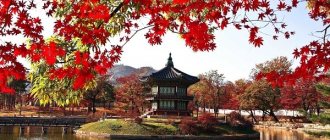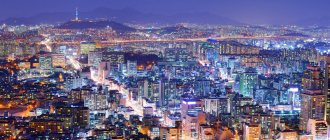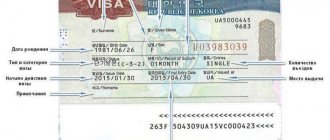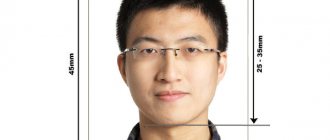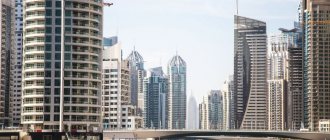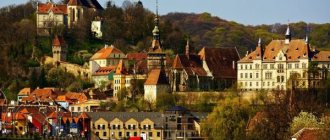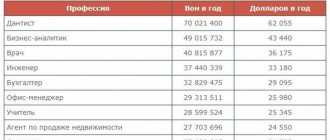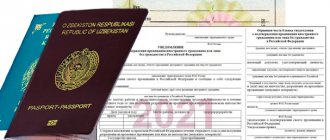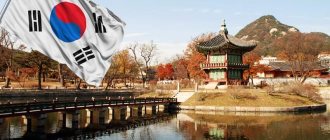Let's understand the terminology
When planning a move, it would be right to first understand some terms. Immigration is entry into another state for permanent residence with a clear purpose. It is often confused with migration and emigration. The first is the resettlement of citizens within the state, the second is the departure of residents of a certain country abroad with the intention of settling in foreign territory.
To implement a project on how to go and live in South Korea, desire is not enough. You will need compelling reasons that will have to be proven documented.
Korean legislation regulating migration issues is considered one of the strictest in the world. Although in recent years there have been some relaxations in the form of an expansion of the list of visas giving the right to permanent residence in the country.
Legalization begins with obtaining an immigration visa. Upon arrival in the country, a foreign citizen must submit a request for a residence permit - a temporary residence permit. This type of document allows you to live in the state for a long time, work, study, and enjoy some benefits available to permanent residents.
Having lived in the country for a certain number of years, the candidate can apply for permanent residence - permanent residence. This status practically equalizes the rights of a migrant with those enjoyed by citizens of the state, with the exception of the opportunity to vote, hold public office and serve in the army.
Having lived on the basis of permanent residence for several more years (the period is set individually by each country), having learned the state language, having shown himself to be a law-abiding person with a permanent income and place of residence, a foreigner can apply for citizenship.
Introduction
In 2009, I was a fifth-year student at the Electrical Engineering Institute. My studies were coming to an end, and I began to think about what awaited me after graduation. There were few options: enroll in graduate school while working at the department at the same time, or get a second specialty at St. Petersburg State University, somehow living on an increased but still meager stipend.
Working at specialized state-owned enterprises was no longer an option - with a starting salary of 15 thousand rubles. In St. Petersburg, a nonresident can only survive. And somehow I considered it beneath my dignity to work for that kind of money after graduating from university. It may be in vain, but I don’t regret it =)
When I learned that in developed countries engineers in my specialty earn at least $2,500 a month, I began to look for opportunities to study/work abroad. My English then was mediocre - I barely passed the FCE exam - but compared to other “techies” it was very good.
It is strange and very bad that in our technical universities they devote so little time to English, because modern science is mainly published in foreign journals. I had to work with a tutor to be ready for an interview in English when applying for a job.
There were quite a lot of options for free study abroad in 2009 - I remember the Erasmus Mundus program, a double degree with the University of Lappeenranta (Finland) and an internship in Aachen (Germany). Finding a job was more difficult, so I somehow immediately decided to study first and then get a job. Among all the offers, I liked Samsung's Korean GSP-SNU program the most. The essence of it is to study for 2 years in the master's program at Seoul National University, and then work for 2 years at South Korean Samsung. Considering that the scholarship for the duration of my studies was slightly less than $1000 (1 million Korean won) per month, and the salary corresponded to the level of developed countries, I decided to try to enroll.
The process from submitting my resume to receiving the final decision took approximately six months. During this time, I passed 2 interviews - a preliminary one with the curator of the program in Moscow and a second one with professors at Seoul University. Remembering now how it all happened, I think that I was very lucky that they took me =) In total, that year, scholarships were given to three Russians, two Indians and one Chinese woman. I was very glad that I was accepted, but on the other hand, the long duration of the program was a little stressful - how can you sign a contract for 4 years if you are going to a completely unfamiliar country? This is actually a big risk, and I know people who were unable to adapt to new conditions and ended up going home. But I believe that “he who does nothing makes no mistakes,” and “he who has gone and gotten lost is worth hundreds of those who chose to remain in the stall.”
As far as I understand, the GSP-SNU program is already closed for Russia, but if you really want to go to Korea to study, you can look for scholarships on the websites of Korean universities - they are still willing to accept any foreigners who more or less know English. And if you have a desire to seriously learn Korean, you can find language learning programs in Korea with scholarships. If you want to work as an engineer, then you should look for vacancies in Samsung and LG.
I didn’t think of my upcoming move to South Korea as an emigration at all, but rather as an adventure. Nevertheless, I had nothing left in St. Petersburg except friends and acquaintances. Considering that housing in Seoul for the first month was provided free of charge under the program, I took with me only dishes and some clothes, hoping to purchase everything I needed in Korea.
A little about the quality of life in Korea
South Korea today is one of the most developed countries in Asia and is consistently among the top twenty countries with a high level of economics and technological progress in the world. You can draw a conclusion about whether it is worth moving to Korea based on the following facts:
- the mortality rate of newborns in the republic is only 4 babies per thousand;
- The average life expectancy of South Koreans is 80 years;
- the country has a very low crime rate;
- Korean medicine is among the best in the world.
Specialists of the highest category can count on good incomes, which today compete with Japan and are ahead of other Asian neighbors. The same factor causes high prices in Korea for all groups of goods and services.
For example, the cost of 1 square meter of living space in Seoul in a residential area is 5-9 thousand US dollars. Renting a one-bedroom apartment not in the city center will cost about $400; in the central part of the capital you should expect at least $700.
The average salary in Korea is approximately $3,300-3,400 (221-227 thousand rubles at the current exchange rate). But, according to reviews from those who have lived here for some time, this amount will not be enough to support themselves and their family. The average monthly expense is about $5,000.
Advantages of living in South Korea
Obtaining resident status in South Korea means the opportunity to enjoy the benefits of a country that ranks 11th in terms of economic indicators. The advantages of moving to the country are:
- Education on a preferential system;
- Highly developed medicine;
- Work in large companies;
- High salary level;
- Investments in business;
- Buying real estate in a developed, prosperous country.
Important! In order to fully enjoy the listed benefits of the country, you will need to be legally present in the country.
Main ways to immigrate to Korea
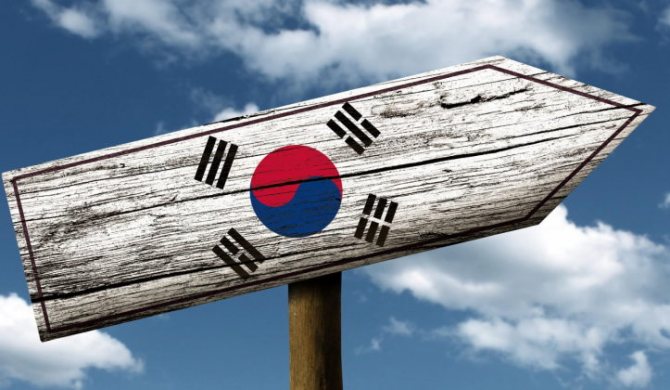
Since April 2021, a visa-free regime has been in effect between the Russian Federation and Korea, allowing Russians to stay on Korean territory without special permits for 60 days.
If the purpose of entering Korea is employment, study or long-term residence, then, according to paragraph 2 of Article 2 between the two states, you will have to obtain a document that gives the right to do this.
Those who are interested in how to stay in Korea must have a reason to move. These include:
- Doing Business. To emigrate in this way, you will have to submit a detailed business plan for your upcoming activities to the authorized agency for consideration. If the Ministry of Economy approves the project, the candidate will receive a long-term visa, which will make it possible to obtain a residence permit.
- Investments. This route is available to migrants only if they invest at least 500 million Korean won in the economy (retirees over 55 years old will need 300 million). As for purchasing real estate, everything will depend on its value. If the price exceeds 500 million won, the authorities will also consider this as one of the investment methods and will immediately issue permanent residence permits. If the cost turns out to be lower, then such a purchase will simply become an advantage when applying for a residence permit.
- Professional immigration. Suitable for those who want to work in Korea. This republic is interested in the influx of “brains”. Programmers, engineers, designers, scientists, and biotechnologists are in demand here. To obtain a residence permit based on employment, a foreigner will need an employment contract with a South Korean company. Since priority in selecting an employee is given to local residents, the contract and candidacy of a foreigner must be approved by the Ministry of Labor. And to do this, the company will have to prove that there was no suitable employee among Korean citizens. The residence permit is issued for a period of one year with the right to extend for another two. After 3 years, a foreign worker can apply for permanent residence. The established three-year period is not mandatory for directors and managers of large international companies. A residence permit for migrant workers also gives the right to move their families to Korea with the right to work.
- Reunion with relatives. This method is available to those who have parents, grandparents, brothers or sisters living in Korean territory. It is mandatory for the receiving party to have held Korean citizenship for at least 5 years at the time of submitting an application for relocation of relatives. The invitation is certified by the Department of Migration of the Republic of Korea (ROK).
- Marriage to a Korean citizen. Persons migrating on this basis will be able to obtain citizenship after 3 years of residence in the country (immediately after marriage, the foreign spouse receives permanent residence). Korea only recognizes official marriages. If the marriage is registered outside the country, it will have to be legalized.
- Relocation of ethnic Koreans. The government has developed several programs to return the country's indigenous citizens. To use them, you need to prove your Korean origin and pass a Korean language proficiency exam. A residence permit is issued for 5 years, but such a document does not allow its owner to stay outside Korea for more than three months a year. But after 5 years, an ethnic Korean will be able to obtain citizenship without applying for permanent residence.
- Studying at a Korean university. To obtain a residence permit, you need to provide a contract with the university, which will detail the curriculum, terms and cost of study. A student residence permit allows you to work part-time: for 20 hours during the educational process and 40 hours during the holidays.
- Emigration for refugees. To obtain refugee status, you will have to prove that the applicant cannot return to his homeland due to persecution that threatens his life.
Other methods of emigration include long-term treatment in the country, participation in volunteer programs or research projects.
Moving to South Korea for work purposes
If you plan to move to Korea for work purposes, you will need to enter into an employment agreement with your employer. Moreover, each agreement will be registered with the country’s Ministry of Labor. Before signing such an agreement, the employer will have to provide evidence of the need to attract a specialist from another country, since citizens of the country have priority. The employer issues a visa to the invited specialist, which allows him to work and live in Korea. At the same time, the specialist must work only for this employer; it is prohibited to change him. Visas are issued for 1 year, after which it can be extended. After three years of living in Korea, it will be possible to apply for permanent residence.
How does the immigration process work?
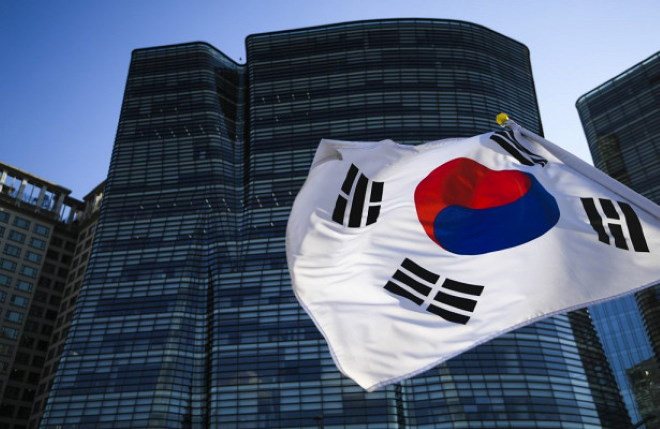
Legalization in Korea for foreign citizens takes place in several stages:
- Obtaining a long-term visa.
- Registration of a residence permit.
- Request for permanent residence.
- Obtaining citizenship.
Whether the candidate will have to go the full route or have the opportunity to shorten it depends on the reason for migration. Let's look at the process step by step.
We issue a residence permit
A residence permit in South Korea is issued by the Department of Migration Affairs. Representatives of this department can be found in any police department in the country. A residence permit refers to documents that require renewal. This is usually done no later than a month before the expiration date of the current permit.
A residence permit is issued if you have a long-term visa and a reason for moving, which must be confirmed by relevant documents.
A residence permit is usually issued for a year with the right to extend for 2 years. After the end of the three-year period, the holder of temporary status is required to leave the country or move on to the next stage of legalization.
When considering a request, you need to be prepared for the fact that the department will need approval from other authorities - the Ministry of Labor, the Ministry of Education or Health (depending on the method of immigration). Immediately upon arrival in Korea, a foreign citizen who intends to live here for more than 60 days must register with the police department.
If we remember that Korea is a country of high technology and the Internet can be found everywhere here, it will not be unexpected that foreigners can solve many issues.
Obtaining permanent residence
To move to the next stage and obtain permanent resident status, you must live in the country for at least 3 years on the basis of a residence permit. Some categories of applicants may not adhere to this rule and move to Korea for permanent residence immediately, but for this they will have to obtain special permission from the government.
A permanent residence permit does not have an expiration date and does not oblige the foreign citizen to decide what to do next - apply for citizenship or return to his homeland. But the status must be confirmed every 10 years.
The confirmation procedure is free. You should contact the same department - the Department of Migration Issues.
The authorities of the republic can deprive a foreigner of permanent residence for failure to comply with the rules of stay in the country - the migrant must reside in Korea for more than 5 years in a row. If during this time he has never appeared on the territory of the state, he will certainly lose his status.
Korean Citizenship
Requesting citizenship is the final step in the legalization process. To be able to apply for a Korean passport, you must meet a number of requirements:
- Have a permanent legal source of income (no limit on the amount).
- Own real estate or rent housing for a long time.
- Do not have dangerous diseases.
- Be law-abiding.
- Learn Korean.
- Renounce previous citizenship.
South Korea does not recognize second citizenship. Therefore, you will either have to submit a request to become a citizen in your home country, or be content with permanent residence status. The exception is ethnic Koreans.
Other ways to move to South Korea
In addition to those listed, there are other ways to move to Korea. For example, residence permits can be obtained by persons who came for treatment, volunteers and members of religious denominations. Also, the Government of South Korea can invite foreign citizens who have special merits, for example, scientists, cultural figures, athletes. If forced migrants arrive in Korea, they have the right to apply for temporary asylum. Refugees who have lived in the country for more than 5 years have the right to apply for Korean citizenship (
What documents will you need?
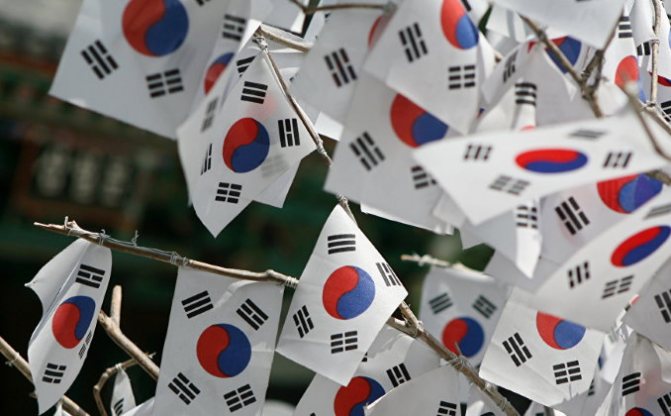
Once the emigration method has been determined, the next thing you need to move to Korea is a certain package of documents. To obtain a residence permit, you must prepare:
- Statement.
- A foreign passport, which must be valid for at least one year.
- National passport with copies of all pages on which there are entries.
- A certificate confirming marriage or divorce.
- Medical certificate of health.
- Confirmation of financial status. This may include a bank account statement showing that there is at least 30 million won (almost 25 thousand US dollars) in it. Migrant workers can provide an employment contract that specifies their salary.
- An agreement for the rental of housing or the right to own it.
- Four photographs.
- Autobiography.
Depending on the migration method, additional documents must be prepared:
- confirmation of relationship with Korean citizens;
- children's birth certificates;
- invitation from university, etc.
All submitted documents must be accompanied by a translation into Korean certified by a notary.
When submitting a request for permanent residence, to the specified list of papers it is necessary to add confirmation that the applicant has a legal source of income, as well as a certificate stating that all this time he has strictly paid all taxes to the budget.
To submit an application for admission to the citizenship of the Republic of Kazakhstan, as mentioned above, you will need proof that the application for renunciation of previous citizenship was sent to the authorized department in the candidate’s homeland.
How to move for permanent residence to South Korea from Russia
To obtain a residence permit in South Korea, you will need to contact the Department of Migration Affairs. An application must be submitted to the department, which will be considered for no more than 1 month. However, in some cases the review time may increase. When applying, in addition to the application, you will need to submit a certain package of documents:
- A foreign passport, which must be valid for at least another year from the date of application;
- Russian passport;
- Certificate of marriage/divorce;
- A certificate confirming the absence of dangerous diseases;
- Documents confirming the availability of housing or rental housing;
- Documents confirming the applicant’s official income;
- Photo (4 pcs);
- Autobiography.
In some cases, other documents may be required.
Important! To obtain a residence permit, you will need to pay a state fee of $165, which is paid in the Korean currency – won.
Time frames and costs at different stages
How much money and time it will take to obtain the desired status depends on the stage of legalization. When requesting a residence permit, it usually takes a month for consideration. Extension of temporary status is being considered for the same amount of time. That is why you need to submit papers to extend your residence permit no later than 30 days before its expiration.
But sometimes the process can take two months. It depends on the workload of the migration department.
It takes at least three months to resolve the issue of issuing permanent status. Considering this circumstance, documents for permanent residence must be submitted three months before the expiration of the residence permit.
But a request for citizenship can take from 8 to 24 months.
For each stage you will need the following budget:
| Service | Price in Korean won | Price in US dollars |
| Initial receipt of residence permit | 200000 | 170 |
| Extension of residence permit | 100000 | 85 |
| Obtaining permanent residence | 500000 | 430 |
| Confirmation of permanent residence | for free | for free |
| Obtaining citizenship | 300000 | 250 |
Why can they refuse?
Refusals for foreigners by South Korean migration services are not uncommon. The basis may be:
- incomplete package of documents;
- inaccurate or false information;
- having a criminal record in your home country or in South Korea;
- service in the police, army or intelligence services of other states;
- suspicion of supporting international terrorist or criminal groups or participating in their activities;
- violation of Korean immigration laws;
- insufficient financial security or questionable origin of funds.
The refusal can be appealed to the Supreme Court of South Korea. The application must be submitted no later than two weeks after receiving a negative response. In this case, a document from the court will serve as a document confirming the legal stay of a foreigner in the country.
Where is the best place to live in Korea?

Emigration to Korea from Russia must take into account one more important point - place of residence. When choosing a city to move to, you should take into account its location, the opportunity to find work there, the standard of living and safety within its borders.
Cities with large concentrations of migrant workers are considered the most unsafe in Korea. But most Russians live in the following settlements: Gwangju, Ansan, Ulsan, Suwon, Busan.
If we consider Korean regions from the perspective of employment prospects, then you need to pay attention to:
- Seoul attracts highly qualified specialists, service workers, and blue-collar workers. The city has a Russian district located near the Dongdaemun History and Culture park metro station. There is really a lot of work in the capital, but you should remember that prices here for all goods and services are much higher than in other cities.
- Daegu - located in the southeastern part of the state, is not attractive to tourists. There are many metallurgical, textile and engineering enterprises on its territory.
- Daejeon is a concentration of research and development companies.
But for migrants who like the tourism business, it is best to choose Korean resorts: Jeju, Geoje, Incheon, Muan.
Results
You can immigrate to South Korea on various grounds. Most often, foreigners choose to work, get married, study or invest.
The legalization process begins with obtaining a long-term visa, then a residence permit, permanent residence and only then citizenship.
Basic requirements for candidates: presence of a legal source of income, knowledge of the Korean language, absence of criminal records and dangerous diseases, documentary evidence of the basis for migration.
